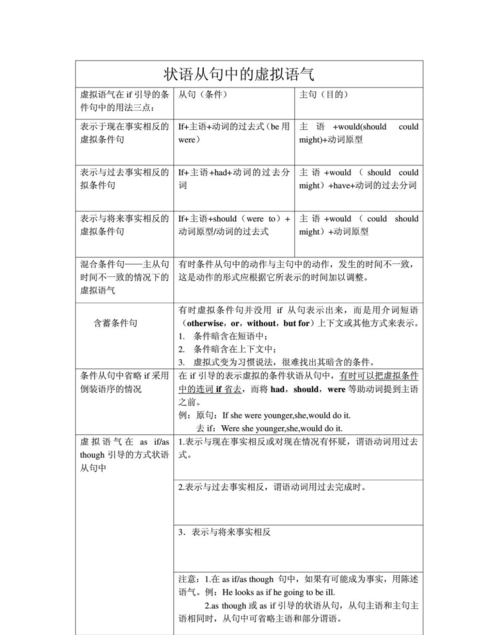一般虚拟语气在英语中用于表达假设、愿望和建议。在假设中,它常用于if从句,如"If I were you, I would go to the doctor." 在愿望中,它表示与现实相反的愿望,如"I wish I knew how to play the guitar." 在建议中,它表示建议或要求,如"It's important that he study for the exam." 掌握一般虚拟语气的用法可以使英语表达更准确、流畅。

假设
一般虚拟语气用于表达假设,即表示“假如……就会……”。它常用于if从句中。例如:
-
If I were you, I would go to the doctor.(假如我是你,我会去看医生。)
-
If I had more time, I would read more books.(假如我有更多时间,我会多读些书。)
这里的were和had都是虚拟语气的形式,表示现在或过去的假设情况。
愿望
一般虚拟语气还用于表达愿望,即表示“我希望……”。例如:
-
I wish I knew how to play the guitar.(我希望我会弹吉他。)
-
She wishes she had more money.(她希望自己有更多的钱。)
这里的knew和had都是虚拟语气的形式,表示与现实相反的愿望。
建议
一般虚拟语气还用于表示建议,即表示“我建议你……”。例如:
-
It's important that he study for the exam.(他要好好准备考试很重要。)
-
The doctor suggested that she rest for a few days.(医生建议她休息几天。)
这里的study和rest都是虚拟语气的形式,表示建议或要求。

